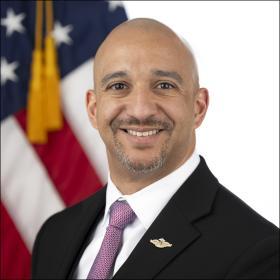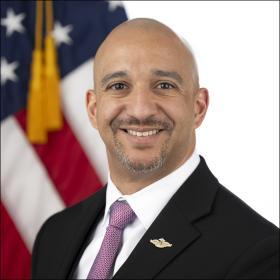Dr. Leith is an Acting Assistant Secretary for Health at the U.S. Department of Health and Human Services (HHS), as well as a seasoned Navy physician. We had the privilege of speaking with him about his journey from military medicine to one of the top leadership roles in federal public health. His reflections offer a powerful look at what it means to lead across vastly different systems—and what enduring principles guided him through both.
When I transitioned from military service to civilian federal leadership, I brought with me the principles that had anchored my time as a Navy physician: mission focus, accountability, and sacrifice above self. But what I’ve learned since—and continue to learn—is that leadership in public health requires transparency, competence and integrity.
In uniform, I was trained to lead with clarity in moments of chaos. Decisions had to be timely, execution disciplined, and the chain of command respected. But in the civilian realm—particularly within large systems like HHS—authority is diffuse, and influence often outweighs rank. I had to evolve from directing teams to building coalitions; from giving orders to aligning incentives. In place of a saluting officer, I now needed buy-in from career civil servants, political appointees, community leaders, and people with lived experience. Listening well became more valuable than speaking first.
That evolution was tested through multiple transitions between administrations. I’ve served under leaders from different parties, each bringing new priorities. What remained constant was the responsibility to protect and promote the health of the American people. Maintaining continuity amid shifting political winds required clarity about what we were there to do. I often reminded myself and my teams: policies may change, but our mission—and our integrity—cannot. In moments of tension, returning to data, science, and the voices of those most affected helped re-center our purpose.
For physicians considering a path in public service, I offer this: it’s not enough to be right—you must also be effective. The skills that make you a strong clinician or researcher won’t automatically translate to impact in the policy arena. You’ll need emotional intelligence, political acumen, and a thick skin. You’ll work in environments where ambiguity is the norm, and progress is often incremental. But if you can stay grounded in purpose—if you see each policy memo, each budget fight, each interagency meeting as part of a broader mission to serve—then the work can be profoundly meaningful.
Public service is not for the faint of heart, or the impatient. It asks more than your time and expertise—it asks for your judgment, your values, and your resilience. But for those willing to lead with humility and courage, it offers something rare: the chance to shape systems, touch millions of lives, and leave something better than you found it.
In that way, it’s not so different from medicine—or the military. It’s just the stakes, and the tools, that have changed.

